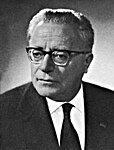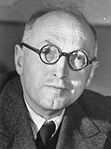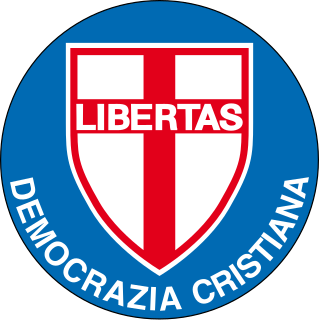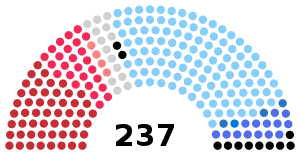
The President of the Council of Ministers of the Italian Republic, commonly referred to in Italy as Presidente del Consiglio, or informally as Premier and known in English as the Prime Minister of Italy, is the head of government of the Italian Republic. The office of Prime Minister is established by Articles 92 through to 96 of the Constitution of Italy. The Prime Minister is appointed by the President of the Republic after each general election and must have the confidence of the Italian Parliament to stay in office.

Amintore Fanfani was an Italian politician and the Prime Minister of Italy for five separate runs. He was one of the best-known Italian politicians after the Second World War, and a historical figure of the left-wing section of the Christian Democracy party; he is also considered to have been one of the founders of the Italian centre-left.

After World War II and the overthrow of Mussolini's fascist regime, Italy's history was dominated by the Christian Democracy political party for 48 years—from the 1946 election until the 1994 election—while the opposition was led by the Italian Communist Party (PCI).

Mario Scelba was an Italian Christian Democratic politician who served as the 33rd Prime Minister of Italy from February 1954 to July 1955. He was also President of the European Parliament from 1969 to 1971.
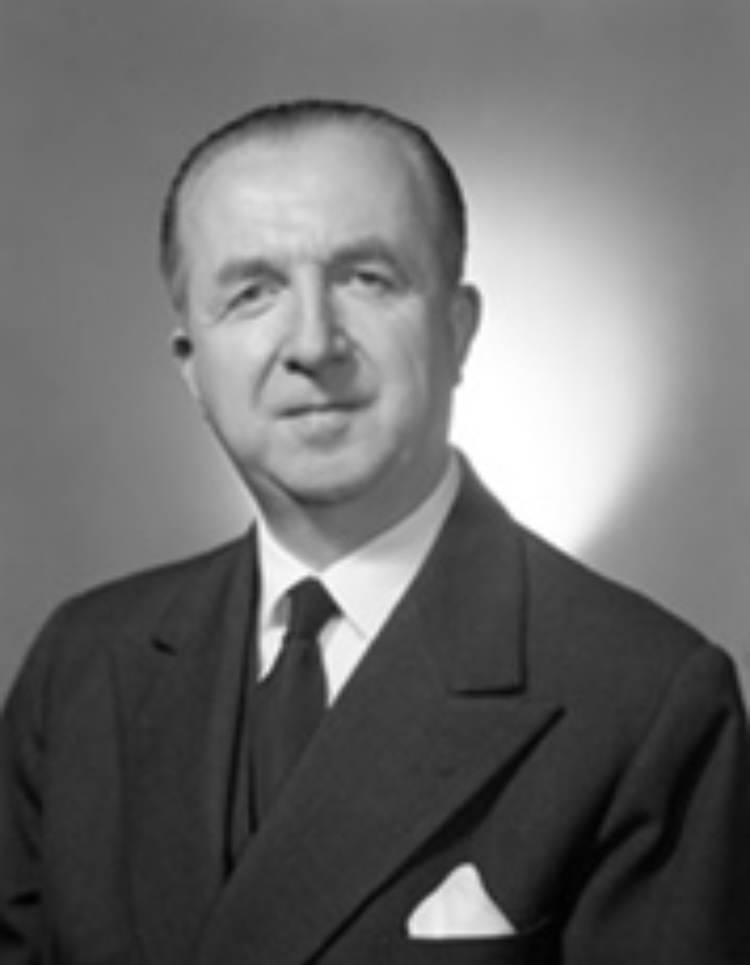
Giuseppe Pella was an Italian Christian Democratic politician who served as the 31st Prime Minister of Italy from 1953 to 1954. He was also President of the European Parliament from 1954 to 1956 after the death of Alcide De Gasperi. His economic and monetary policies in the ministry of finance based Italian reconstruction solidly on the best liberal traditions of Western capitalism.
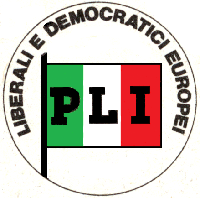
The Italian Liberal Party was a liberal and conservative political party in Italy.

General elections were held in Italy on Sunday 18 April 1948 to elect the First Republican Parliament. They were heavily influenced by the Cold War confrontation between the Soviet Union and the United States, and are now best known for the covert political warfare waged by the US State Department and Central Intelligence Agency on behalf of the Christian Democratic Party (DC).

General elections were held in Italy on Sunday 25 May 1958, to select the Third Republican Parliament. The number of MPs to be elected was calculated upon the population's size for the last time.

General elections were held in Italy on 28 April 1963, to select the Fourth Republican Parliament. It was the first election with a fixed number of MPs to be elected, as decided by the second Constitutional Reform in February 1963. It was also the first election which saw the Secretary of Christian Democracy to refuse the office of Prime Minister after the vote, at least for six months, preferring to provisionally maintain his more influent post at the head of the party: this fact confirmed the transformation of Italian political system into a particracy, the secretaries of the parties having become more powerful than the Parliament and the Government.

General elections were held in Italy on 19 May 1968 to select the Fifth Republican Parliament. Democrazia Cristiana (DC) remained stable around 38% of the votes. They were marked by a victory of the Communist Party (PCI) passing from 25% of 1963 to c. 30% at the Senate, where it presented jointly with the new Italian Socialist Party of Proletarian Unity (PSIUP), which included members of Socialist Party (PSI) which disagreed the latter's alliance with DC. PSIUP gained c. 4.5% at the Chamber. The Socialist Party and the Democratic Socialist Party (PSDI) presented together as the Unified PSI–PSDI, but gained c. 15%, far less than the sum of what the two parties had obtained separately in 1963.

General elections were held in Italy on 7 May 1972, to select the Sixth Republican Parliament. Democrazia Cristiana (DC) remained stable with around 38% of the votes, as did the Communist Party (PCI) which obtained the same 27% it had in 1968. The Socialist Party (PSI) continued in its decline, reducing to less than 10%. The most important growth was that of the post-fascist Italian Social Movement, who nearly doubled its votes from 4.5% to about 9%, after its leader Giorgio Almirante launched the formula of the National Right, proposing his party as the sole group of the Italian right wing. After a dismaying result of less than 2%, against the 4.5% of 1968, the Italian Socialist Party of Proletarian Unity was disbanded; a majority of its members joined the PCI.

General elections were held in Italy on 3 June 1979, to select the Eighth Republican Parliament. This election was called just a week before the European vote: the failure to hold the two elections at the same time caused much criticism for wasting public money.

The Italian Democratic Socialist Party was a minor social-democratic political party in Italy. The PSDI, before the 1990s decline in votes and members, had been an important force in Italian politics, being the longest serving partner in government for Christian Democracy. The party's founder and longstanding leader was Giuseppe Saragat, who served as President of the Italian Republic from 1964 to 1971.
The Slovene Union is a centrist political party in Italy representing the Slovene minority in the Friuli-Venezia Giulia region. Its Slovenian language name means literally "Slovene Community", but the denomination "Slovene Union" is used in other languages.
The Pentapartito, commonly shortened to CAF refers to the coalition government of five Italian political parties that formed between June 1981 and April 1991. The coalition comprised the Christian Democracy (DC) party and four secular parties: the Italian Socialist Party (PSI), Italian Democratic Socialist Party (PSDI), Italian Liberal Party (PLI) and Italian Republican Party (PRI).
The centre-left coalition is a political alliance of political parties in Italy active, under several forms and names, since 1995 when The Olive Tree was formed under the leadership of Romano Prodi. The centre-left coalition ruled the country for more than twelve years between 1996 and 2018.
Citizens of Milan elect every five years the Mayor of the city, presidents and members of 9 districts's assemblies and 48 members of the City Council, which controls Mayor's policy guidelines and is able to enforce his resignation by a motion of no confidence.
Centrism was a centrist anti-communist coalition of four Italian political parties that formed governments throughout the 1940s and the late 1950s. This period is known as "The Years of Centrism". The founder of this coalition was Alcide De Gasperi, Christian Democratic leader and Prime Minister of Italy. Another key figures of the Centrist coalition was the Liberal Luigi Einaudi, who was elected President of Italy in 1948 and remained in office until 1955.




